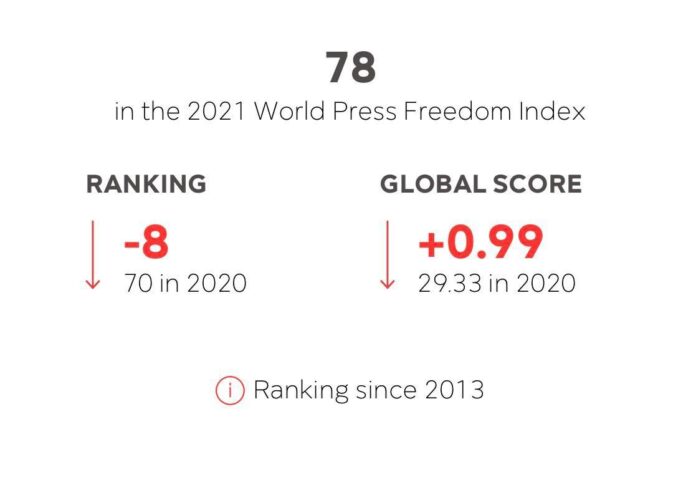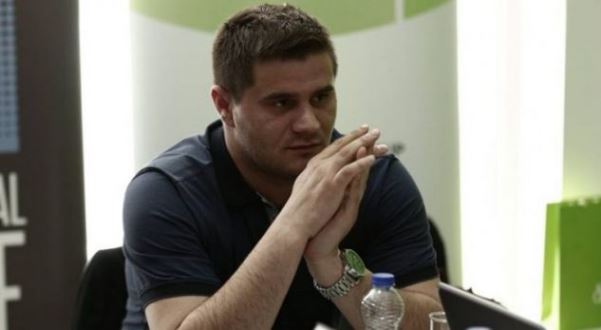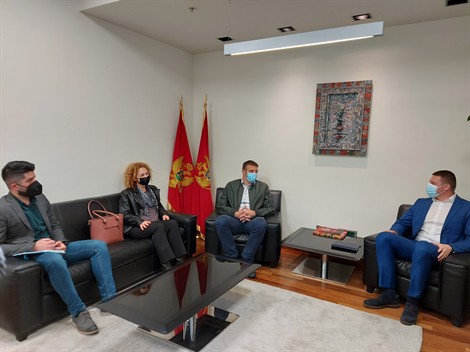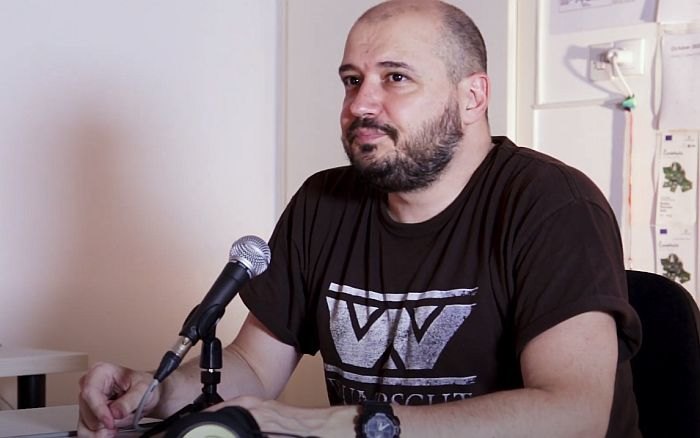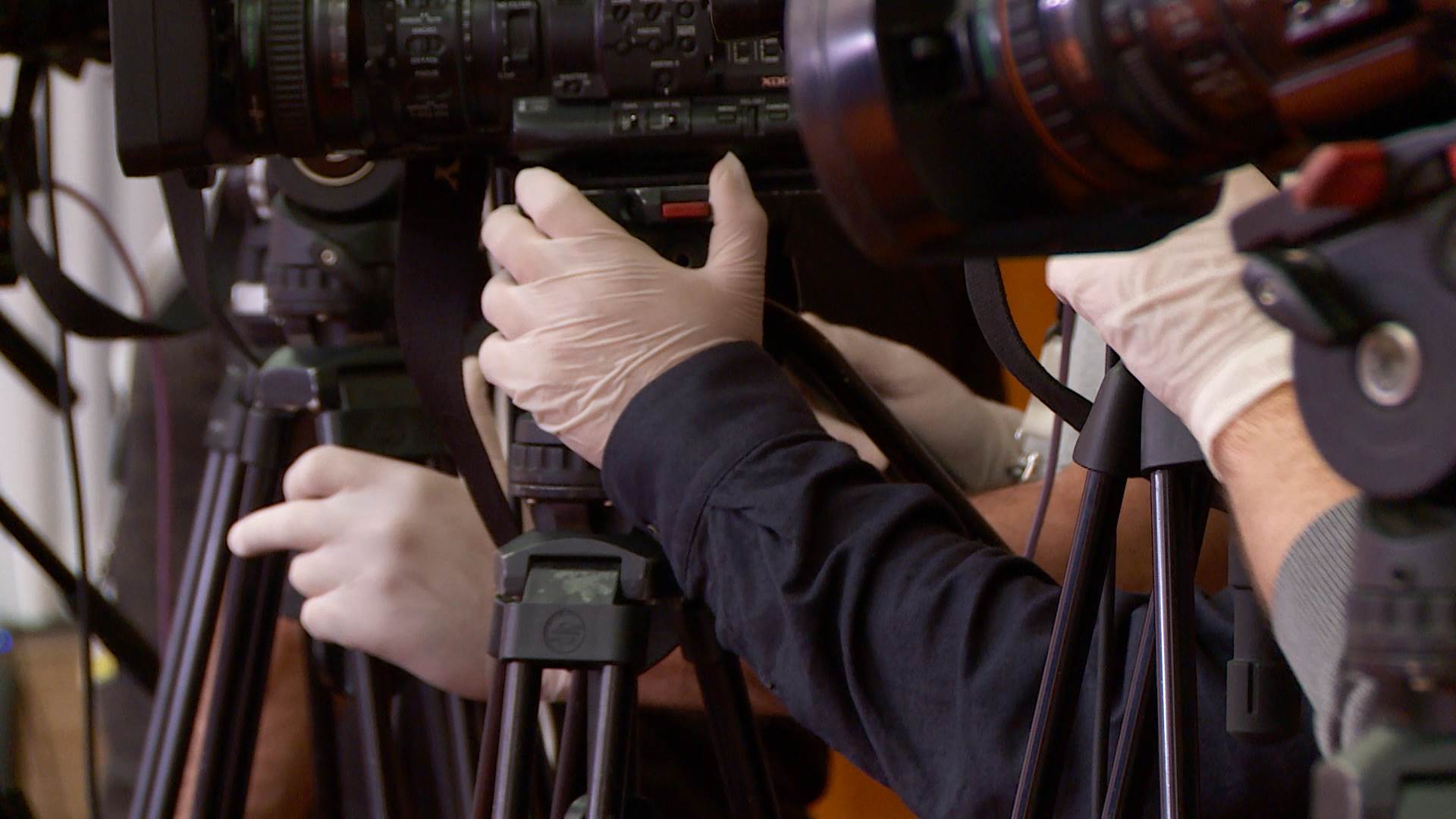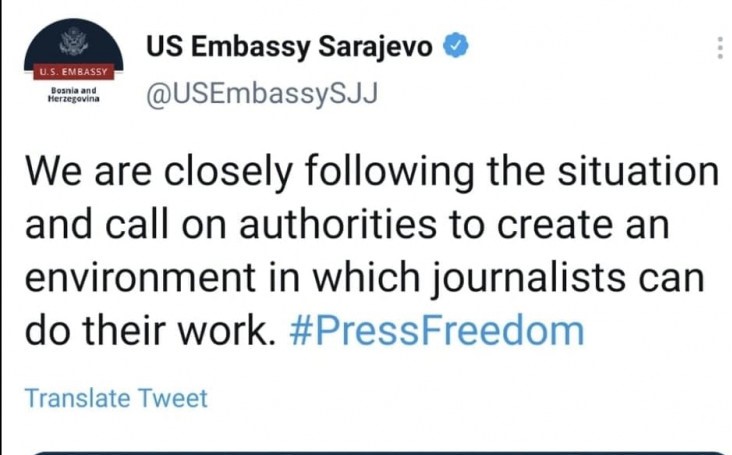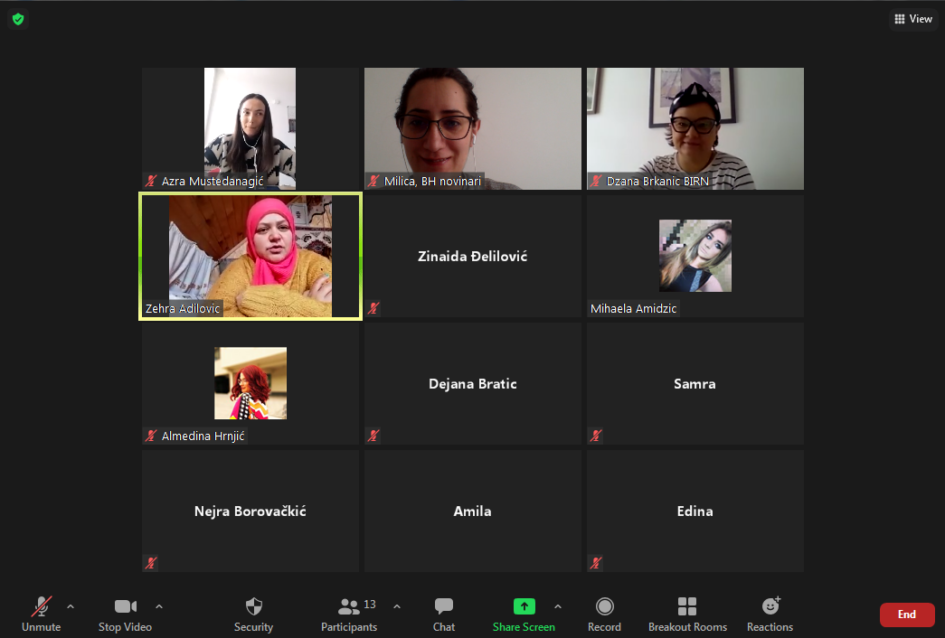No one can deny that 2020 was a terrible year due to the pandemic, so the “Amnesty International” report was facing a great challenge to crystallize everything that happened on a global scale. However, in the regional countries of the Western Balkans, the authorities have also seized the opportunity to stifle that little bit of media freedom left. All researchers from media organizations, which are members of the SafeJournalist Network, agreed with the evaluation of the report, but they certainly gave a deeper context to it.
Albania
In March, the Prime Minister threatened media organizations with closure for “spreading panic” over COVID-19. The authorities retracted a controversial anti-defamation law that threatened online media freedom. In August, the authorities seized “Ora News TV” following an investigation into the owner’s assets. The media group remained operational.
“I have documented and reported the incidents affecting media which are listed in the report as well, but also the excessive use of force in the clashes in May and December 2020”, said BlerjanaBino, researcher within the SafeJournalist Network for Albania.
She said that “the SafeJournalist Network has also reacted accordingly and even alerted European authorities about the excessive use of force towards journalists in December 2020. clashes in Tirana and Durres”.
“2020.was a very difficult year for media in Albania, media freedom during 2020.has decreased. Concerns over the safety of journalists increased with 19 alerts including threats against the lives and physical safety of journalists, non-physical threats and harassments, actual attacks, and threats and attacks on media institutions”, she said.
Bosnia and Herzegovina
The BH Journalists Association recorded nearly 30 cases of serious violations of media freedom, including physical assault and death threats against journalists and other media workers. Journalists and others criticizing the government’s COVID-19 response faced backlash and censorship. In several cantons, independent journalists were denied access to government briefings on the COVID-19 crisis. In March, the Republika Srpska government issued a decree prohibiting the “incitement of panic and disorder” and imposed heavy fines for violations. At least 18 people were charged under the decree before it was repealed in late April, including a medical doctor who expressed concern on social media about the lack of equipment and capacities in local hospitals. Authorities of BH Federation actively monitored private social media accounts and criminally charged at least five people for “spreading false information and panic” in March. At the end of the year, there was no credible information on whether any of the charges were dropped. The Council of Europe Commissioner for Human Rights warned that the measures limited the right to freedom of expression.
“The coronavirus pandemic in 2020 left significant, primarily economic, consequences on the work of journalists and the media in Bosnia and Herzegovina. Immediately after the declaration of a state of natural or other disasters in mid-March, about 10% of journalists and other media employees lost their jobs and contracts with part-time associates and freelancers were terminated in a number of media outlets”, Maja Radevic said, researcher of the SJ Network in front of the BH Journalists Association.
She added that “most media outlets have been left without permanent sources of funding from their advertisers”.
“Although journalists; associations and the media community, as well as members of the European Parliament, have proposed the establishment of a fund for financial assistance to the media, such initiatives have not been considered in the relevant institutions”, she added.
“In terms of numbers, there were less attacks and threats in comparison to 2019. However, the rising trend of pressures from politicians, public officials and judicial institutions on journalists is very worrying. Online violence against journalists, especially female journalists, is also on the rise, as well as hate speech, threats and harassment via social networks. In most such cases, the attackers are not sanctioned”, Maja Radevic said.
Croatia
Journalists investigating corruption and organized crime continued to face threats and intimidation. According to the Croatian Journalists’ Association over 900 lawsuits were filed against journalists and media outlets for “violation of honour and reputation”. The European Federation of Journalists warned that such lawsuits had a chilling effect on journalists and the media.
Researcher Monika Kutri from CJA said that everything that was written in the report is true.
“I would add that lawsuits have become a big problem in Croatia because they represent an ‘elegant’ form of attack on journalists. Many of these lawsuits are slapps and they actually exist to discourage and exhaust journalists financially and mentally. Last year, according to data collected by the CJA, there were at least 905 lawsuits against journalists and the media, most of which will most likely be determined to fall apart. Croatian Radio-Television was extremely active in the issue of lawsuits, so it sued a lot of other media, the Croatian Journalists’ Association, and even its own employees”, she said.
Kosovo
Investigative journalists faced threats, slurs and attacks. In June, the former Minister of European Integration opened a defamation lawsuit against JetaXharra, director of the Balkan Investigative Reporting Network, KALLXO.com and Prishtina Insight. In July, Jeta Xharra was threatened by another former minister, and in September, former Prime Minister Ramush Haradinaj called journalists “mercenaries”. In October, journalist Shkumbin Kajtazi’s car was damaged by gunfire outside his home in Mitrovica.
Getoarbe Mulliqi from the Association of Journalists of Kosovo said that “’the Amnesty International Report 2020/21’ findings regarding the Freedom of Expression are a reflection of the situation of the media and journalists in Kosovo”.
“The trend of state officials and political officials assaulting, threatening and lynching journalists is increasing. It is disturbing as it leads to other attacks and threats toward journalists, not only by officials but by citizens as well. The number of threats and attacks toward journalists has increased in comparison to previous years, and it should be mentioned that Jeta Xharra and Shkumbin Kajtazi were subject to threats twice each within the same year”, she said.
Getoarbe added that “the AJK has a fruitful cooperation with Kosovo Police”.
“As well as the Prosecutor’s office, however the chain breaks when it comes to the judiciary, as the sentences are either not proportional to the crime, or are prolonged until there is no case whatsoever”, she said.
Montenegro
Impunity continued for historic attacks on journalists, including investigative journalist Olivera Lakic, who was shot in 2018. In December, NGO Human Rights Action urged the State Prosecutor to provide protection to Olivera Lakic, after a plan to assassinate her was revealed. In January, proceedings were initiated against three journalists, detained for between 14-28 hours for “causing panic and disorder”; two were prosecuted. Private individuals were similarly detained, four of them for posting “false news” about COVID-19 on social media; three were indicted. The Appeals Courts quashed the convictions of two other individuals fined under public order legislation for criticizing officials online.
“The previous year was very challenging in terms of freedom of expression in Montenegro, especially when it comes to the safety of journalists. This is confirmed by the latest report by Amnesty International. The biggest problem is still that the most serious attacks on journalists, such as the attempted murder of journalist Olivera Lakic, or the murder of the editor-in-chief of ‘Dan’, Dusko Jovanovic, did not receive an adequate legal epilogue”, Bojana Lakovic Kontar from the Trade Union of Media of Montenegro stated.
She said that “lack of capacity or political will to tackle these attacks is causing fear among journalists, who are increasingly reluctant to investigate topics such as corruption or organized crime”.
“It is not encouraging that the state bodies in charge of investigating these attacks, such as the prosecution, did not cooperate with the Commission for the Investigation of Attacks on Journalists and Media Property, nor did they provide them with the necessary information. Also, the year behind us was marked by three arrests of journalists and editors for ‘causing panic and riots’, which is also a dangerous trend for journalists to be arrested for publishing news”, she added.
She added that the report still lacks some details.
“What is not stated in the report, and which also encourages insecurity and fear among the representatives of the public word in Montenegro, is the growing trend of threats through social networks. During the previous year alone, TUMM registered seven threats via social networks, and in some cases those threats moved to the ‘real’ world”, Bojana Lakovic Kontar said.
North Macedonia
On the other hand, Milan Spirovski from the Association of Journalists of Macedonia is surprised because there is no part on Freedom of Expression for his country.
“We are surprised by the fact that in this year’s report, there is no section dedicated to the safety of journalists, although the trend in 2020.is worrying and has increased compared to previous years. There is also a partstating that the government was working on disinformation reforms in September 2020.which is not correct as there were no such activities”, he said and added that “they had sent a formal request to the government regarding this with a question which were the reforms mentioned in that information”.
“At the moment we are waiting for a formal reply, but meanwhile we were unofficially informed that, in fact, such a reform does not exist”, he said.
Serbia
Physical attacks, intimidation and political slurs on social media against media workers continued. In April, journalist Ana Lalic was arrested for “causing panic” while investigating conditions in hospitals; staff were prohibited from providing “unauthorized” information. Journalists were briefly excluded from government press conferences, ostensibly for health reasons. In July, the Finance Ministry targeted individuals, investigative journalists and 37 human rights NGOs in demanding bank account details under a law used to investigate terrorist financing and money laundering.
Rade Djuric from Independent Journalists’ Association of Serbiaespecially emphasizes repressive measures during the state of emergency, in particular when it comes to the arrest of Ana Lalic under the accusation of spreading panic or the arrest of journalists DanijelRadic and Robert Bajtai in Zrenjanin for violating the Law on Protection of the Population from Infectious Diseases.
“Ana’s phone was also confiscated, she was detained during the evening, that is night, and it turned out that perhaps the real goal was the intention to find and intimidate sources of information, which was clear after the start of internal investigations against unidentified persons who disclosed information within the Clinical Centre of Vojvodina”, he said.
Rade added that “the (last) year was especially marked by physical attacks and injuries of journalists”.
“Number increased (22 in the Safejournalists database) compared to previous periods (in 2019, 11 direct physical threats and attacks were recorded). In 22 separate incidents, 31 journalists were physically attacked or threatened, in our database we record 20 incidents, slightly different from the SJ base. The biggest reason for that is the violent demonstrations in July, where we recorded 15 different attacks and threats”, he said.
Rade notes that “there is a lot of data that indicates that the police and the judiciary are under almost complete control of the executive branch”.
“The prosecution and the police act selectively, efficiently in specific cases, and this usually happens when it comes to cases in which the attackers are ordinary citizens and people with health problems. Most cases are still rejected and if they are resolved, it is mostly a matter of the principle of opportunity, i.e. admission of guilt“, he said.


